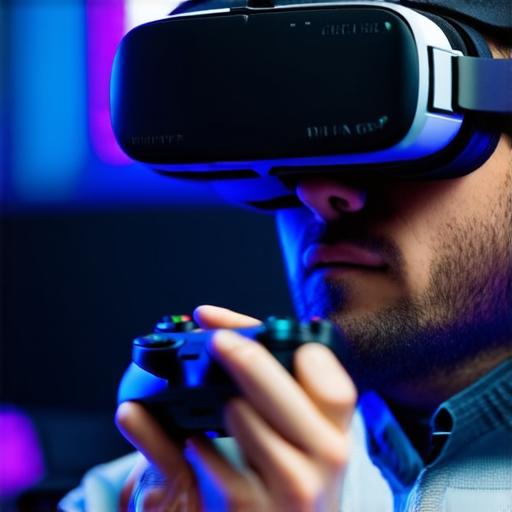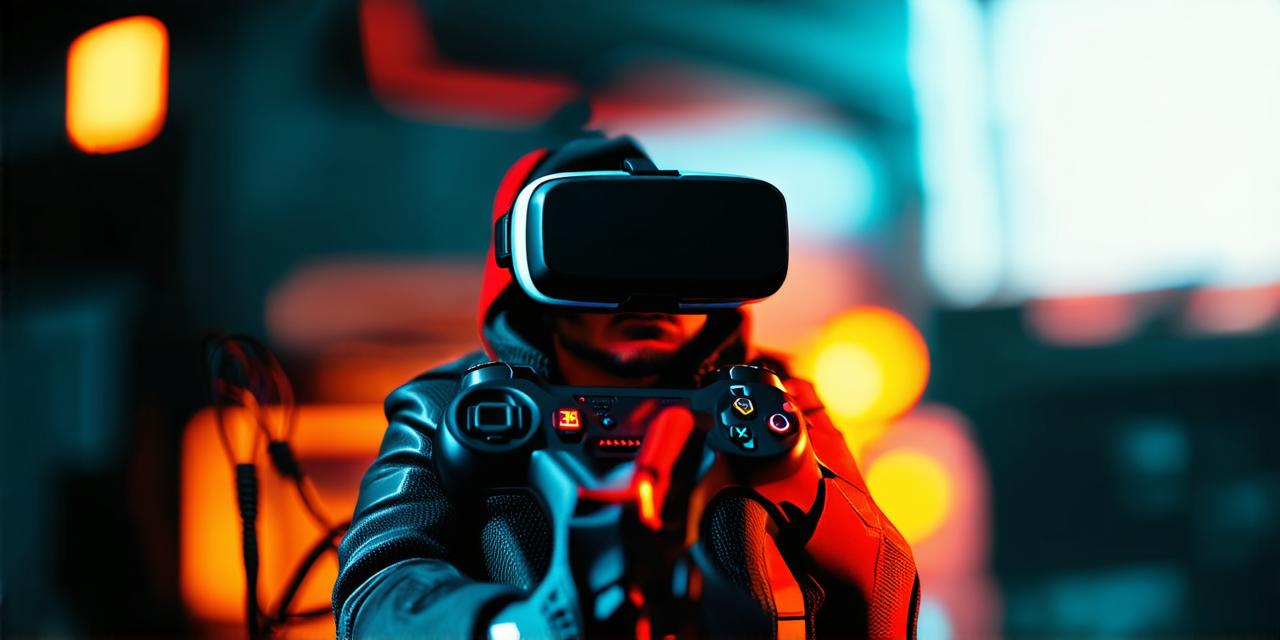Virtual reality (VR) technology has been advancing rapidly in recent years, with games and experiences becoming increasingly immersive and realistic. However, as with any new technology, there are concerns about the potential dangers that VR games may pose in real life. In this article, we will explore some of these risks and examine whether they can truly have a negative impact on our daily lives.
One of the most obvious risks associated with VR games is motion sickness. Motion sickness occurs when there is a mismatch between what your brain perceives as movement and what it actually feels. In virtual reality, this can occur because your body may be stationary while your head is moving rapidly in different directions. This can lead to feelings of nausea, dizziness, and disorientation.
Motion sickness can have serious consequences for some individuals, including those with pre-existing conditions such as vestibular disorders or migraines. It’s important for VR developers to consider these risks and provide options for players to adjust the game settings to reduce motion sickness symptoms.
Another potential danger of VR games is the risk of injury. While VR systems are designed to be safe, accidents can still happen. For example, if you’re playing a game that requires you to move around in real life, there’s always the risk of bumping into furniture or other objects. Additionally, some VR games may require you to stand or sit for extended periods, which could lead to back pain or other physical issues.
It’s important for VR developers to prioritize safety when designing their games and experiences. This includes providing clear instructions on how to use the equipment, ensuring that players have enough space to move around safely, and offering options for adjusting game settings to reduce the risk of injury.
Virtual reality games can also have psychological effects on players. For example, research has shown that playing violent video games can increase aggressive behavior and decrease empathy in real life. This is because virtual reality games can desensitize players to violence and make them more likely to engage in aggressive behaviors. Additionally, some VR games may trigger anxiety or other mental health issues for certain players.
It’s important for parents and guardians to monitor their children’s VR game use and ensure that they are not engaging in games that could have negative psychological effects. It’s also important for mental health professionals to be aware of the potential risks associated with VR games and to provide support to individuals who may be experiencing adverse effects.
Real-life examples of VR games causing harm can serve as a cautionary tale. One of the most famous cases was the death of a man who fell into a virtual reality game while playing “Beat Saber.” The man reportedly collapsed and died from an unknown cause after hitting his head on the ground while moving quickly in the game.
Another example was the case of Nathan, a man who died while playing the VR game “Job Simulator.” It’s unclear whether the game played a direct role in Nathan’s death, but it serves as a reminder that even seemingly harmless games can have serious consequences.
Research on the effects of VR games has shown both positive and negative outcomes. For example, studies have shown that VR games can be effective in treating conditions such as PTSD and anxiety disorders. However, other studies have found that playing violent video games can increase aggressive behavior and decrease empathy in real life.

In conclusion, while virtual reality games can be a fun and engaging way to pass the time, they can also pose real-life dangers. Motion sickness, injury, psychological effects, and even death are just a few of the potential risks associated with VR games. It’s important for VR developers, parents, guardians, and mental health professionals to be aware of these risks and take steps to mitigate them. By doing so, we can ensure that VR games remain safe and enjoyable for everyone.
